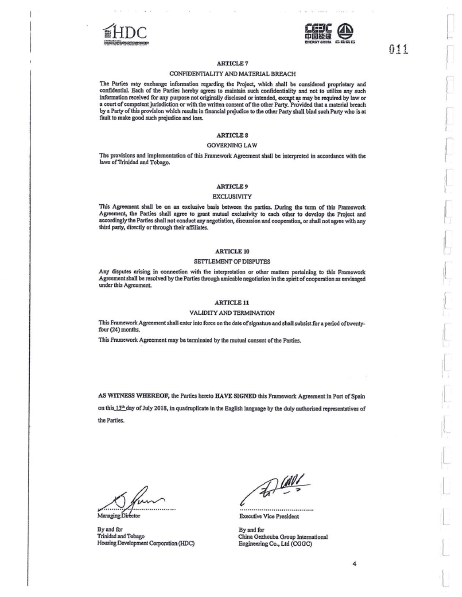The Editor,
The Minister of Public Administration [MPA] responded to my previous letter in the Sunday Edition of 29 October 2023, the very next day.
Minister West disputed my citations of the monthly rent of $600,000 and the 23,000sf floor area of those offices, as well as my conclusion that the resulting rent of $26psf signified ‘flagrant corruption’. The Minister went on to say that the correct monthly rent was $500,000 and that the floor area was in fact 43,295sf, which equates to a rent of $11.55psf.
As I indicated in the previous letter, my figures were drawn from both the PM’s public statements and the immediately subsequent Express article. The PM emphatically stated the monthly rent to be $600,000 at the post-Cabinet Media Briefing on Thursday 23rd March 2023 and the 23,000sf floor area is in that Express article of 11 March 2023 – $40M SPENT ON NEW DPP OFFICE – but I have not been able to establish any other source for that citation.
Minister West gave no citations in support of the claimed figures and I reject entirely the unstated position too often taken by our rulers that “if I say so, is so.” I gave my citations, so given that MPA is relying upon the Lease and Valuation Report for this property to challenge my citations, those documents should be published now, to “show us their workings.”
Of course, if the State was able to rent those high-quality Park Court offices at $11.55psf, I have no difficulty in accepting that as a commendable negotiation outcome, notwithstanding the other aspects which have stirred public concern on this matter.
The AG told the Standing Finance Committee of Parliament on 19th October 2023 that the Public Money spent on that property was $55,551,443.93 (at 4:49:45). Given the understandable and widespread public concerns arising from this large-scale expenditure, it would be an important step towards transparency for the MPA to issue details of how those monies were spent. The $500,000 monthly rent stated by Minister West would amount to $19.0M over the three years and two months that property was leased. The cost of the improvements and modifications has repeatedly been stated as $24M. The total of those two figures is only $43M, so I have certain concerns. I am sure that a statement clarifying those details can be quickly issued.
Finally, this entire issue of the wasted Public Money on these offices which were never occupied is rooted in the requirement for a proper Needs Assessment before committing to any Procurement. If a Needs Assessment was done in this matter, there is certainly good reason to re-examine that process to ensure that we avoid such waste in the future.
The Minister also mentioned that these details are available on the ‘Property & Real Estate portal’ at https://pmis.gov.tt/, but this as yet inaccessible to the public. Why not make the entire database readily accessible to the public, just like the EBC list?
Afra Raymond
afraraymond.net







 Afra Raymond appeared on CNC3’s The Morning Brew with host Hema Ramkissoon on Monday 10 June 2019 to discuss the proposal to amend the Freedom of Information Act (FOIA). The FOIA has been an instrumental piece of legislation in the quest for transparency and accountability in governance. Any amendments to this act necessarily affect this process. Video courtesy CNC3 Television
Afra Raymond appeared on CNC3’s The Morning Brew with host Hema Ramkissoon on Monday 10 June 2019 to discuss the proposal to amend the Freedom of Information Act (FOIA). The FOIA has been an instrumental piece of legislation in the quest for transparency and accountability in governance. Any amendments to this act necessarily affect this process. Video courtesy CNC3 Television
 Are we seeing a rising tide of corruption scandals, or an increase in the level of public awareness and demands for transparency? Marla Dukharan and Afra Raymond discuss:
Are we seeing a rising tide of corruption scandals, or an increase in the level of public awareness and demands for transparency? Marla Dukharan and Afra Raymond discuss: